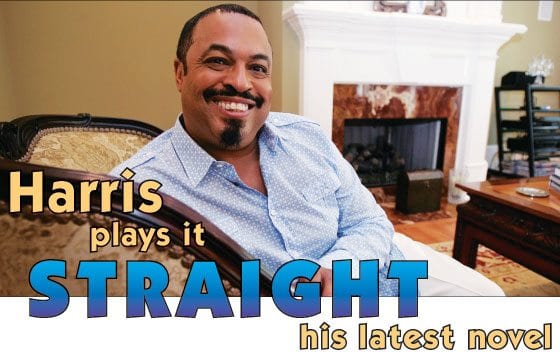
ATLANTA — Best-selling writer E. Lynn Harris can still remember the first time he realized he was poor.
His family had been invited to the housewarming of a well-to-do family in his hometown of Fayetteville, Ark. Harris, then a young boy fresh from an afternoon of playing outside, was sitting in the living room when another guest remarked on his appearance. For much of the visit, he tried desperately to tuck his bare, dusty feet underneath the sofa.
It was those childhood memories that helped motivate his success in later years.
“I didn’t grow up in the kind of environment that my characters grew up in, or the kind of environment that I live in now,” the 52-year-old author says. “It was one of the things that I always aspired to.”
His fame has made him a part of a more privileged world, and his success can be partly attributed to showing his readers a world with which they were previously unfamiliar: the secret world of professional, bisexual black men living as heterosexuals.
Last week, Harris returned after a two-year hiatus with his 10th novel, “Just Too Good to Be True.” In some ways, the book returns to some of his typical themes — family, relationships, fame — but Harris also takes on new territory, focusing for the first time on a straight relationship.
His writing falls into several genres, including gay and lesbian fiction, African American fiction, urban fiction, and so on. And with 4 million copies in print, the books are also best-sellers.
Harris’ latest book took him four years to write, and while it was a challenge to write about straight characters half his age, he did not see the story as a risk.
“I’m a writer,” Harris says. “There are always going to be these categories that people will try to use to describe me, but I should not be put into a box.”
“Just Too Good to Be True” tells the story of 21-year-old football star Brady Bledsoe; his mother, Carmyn, a successful Atlanta beauty salon owner; and Brady’s cheerleader love interest, Barrett Manning.
To help with the writing, Harris leaned on students from the writing classes he taught at his alma mater, the University of Arkansas, where he plans to return in the fall after his book tour. He also has a 21-year-old son who is a senior at Arkansas.
“I had a classroom of Bradys every day,” Harris says. “I would listen to their vernacular, watch what they did.”
That he can now tell a different type story can be attributed to his success, his storytelling ability and the evolvement of attitudes about black gay culture that didn’t exist at the time of his 1994 debut, “Invisible Life.” The book was a coming-of-age story that dealt with the then-taboo topic of the “down low,” or bisexual black men living as heterosexuals.
“If you were African American and you were gay, you kept your mouth shut and you went on and did what everybody else did,” he said. “You had girlfriends, you lived a life that your parents had dreamed for you.”






